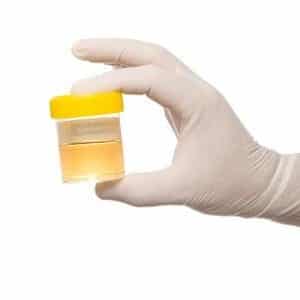 Cross-posted from RadicalRuss.com – video version available on The Russ Belville Show at 1:45pm today.
Cross-posted from RadicalRuss.com – video version available on The Russ Belville Show at 1:45pm today.
In the suburbs of San Diego, there was a tragedy. Last November, a varsity lacrosse player at Poway High School was attending a party when he and some friends began smoking some marijuana. According to reports, the young man began banging himself in the head with a frying pan and ended up dead, shot between the eyes with a long rifle.
The media and anti-drug crusaders quickly jumped on the latest drug scare bandwagon. Local news interviewed drug counselor Nancy Knott, who speculated that the marijuana might have been laced with “bath salts”, the mislabeled designer drug sold in head shops that mimics a meth-or-cocaine-like high. However, the subsequent autopsy found only traces of marijuana and alcohol in the boy’s system and could not conclude whether the death was suicide or homicide, while noting the boy was not depressed or suicidal.
In response to the tragedy, a state lawmaker pledged to introduce a bill banning bath salts and parents began demanding answers. In nearby Rancho Bernardo, the high school responded by instituting a program of voluntary random drug testing for the high school football team. Yes, voluntary; just under half of the school’s 100 football players have agreed to submit to random testing. There is nothing preventing, say, a pot smoking running back from opting not to be a part of the program while the non-pot-smoking lineman chooses to pee randomly to prove he’s clean.

Fortunately for the taxpayers, parents who opt to have their kids drug tested are paying for the service at Rancho Bernardo High. In two other high schools in San Diego County, Oceanside and El Camino, athletes and cheerleaders are subject to a mandatory random drug testing policy. The program began under federal funding, but the district has picked up the tab since the feds cut the money in 2008.
Nearby Vista Unified School District ceased their testing program when that federal grant money ran out. They found out that from hundreds of tests that were taken, fewer than fifteen positive tests turned up, and of those, some were explained by legitimate medical reasons. With so few positive tests at such great expense, the district concluded the effort wasn’t worth the money.
With Rancho Bernardo’s voluntary testing policy, it’s hard to imagine they’ll turn up more positive drug tests than Vista Unified did. However, that doesn’t stop Will Wooton, the director of the local drug rehab center, Pacific Treatment Services, from praising the Rancho Bernardo program in a recent op-ed in the local paper.
I’d like to commend the Rancho Bernardo High School football team for initiating drug testing for their teams. I feel this is a great opportunity to allow kids to make the right choice and perhaps prevent another tragedy. I hope other teams and schools will follow their lead.
It’s easy enough to see the rent-seeking behavior – when you sell drug rehabilitation services, it behooves you to promote drug testing. Since the drug testing often leads parents to enroll their kids in your drug re-education camps they may not need, it fattens your bottom line. Ditto for referrals from school drug testing programs and juvenile courts:
We are recognized by the San Diego Juvenile Court as a treatment provider. If your teen was recently arrested or has an open court case, we can help. Our Program is designed to fulfill any legal obligations as well as reports and drug testing as requested.
Our Program is designed to fulfill the requirements of school contracts for education, counseling, group participation, and drug testing. We will review your teen’s case and assist you in each area.
But Will Wooton tries to make a convincing case to parents to distrust their adolescents – it’s for their own good!
I do very strongly believe, and have seen, where drug tests can prevent abuse and give non-addict adolescents a reason not to use. Therein lies the difference. Non-addicts don’t allow their choices to be dictated by drugs. They may be at a party and say “Sure, I’ll try it” because there may be no consequences. Now, with the possibility of a test in the future, we’ve created a reason for them to pass. We’ve built in a preemptive consequence allowing them to think about their choice.
So, when your non-addict adolescent engages in a behavior for which there are no consequences, you need to violate his trust to manufacture a consequence? The marijuana smoking by itself is something so benign you can’t dissuade your kid from trying it based on its own harms so you have to make some up?
Drug testing your kids is a very bad idea. Please, don’t take my word for it; I don’t have children. Take it from the American Academy of Pediatrics which “encourages parents who are concerned that their child may be using drugs or alcohol to consult their child’s primary care physician or other health professional rather than rely on school-based drug screening or use home drug-testing products.” The doctors who study children also note that “claim that the existence of a school- or home-based drug-testing program will help adolescents refuse drugs and provide legitimate reasons to resist peer pressure to use drugs” are not proven and drug testing programs “risk… harming the parent-child and school-child relationships by creating an environment of resentment, distrust, and suspicion.”




